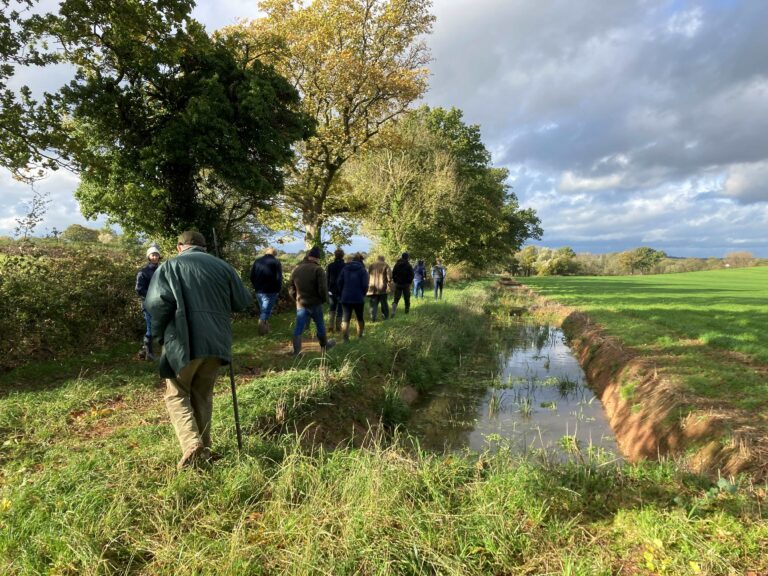Phosphates from animal feed are causing harm to Britain’s rivers. Now, major poultry businesses are committing to change.
The problems with water quality in the River Wye have received national attention in the past few years, and the poultry industry has been firmly in the crosshairs of campaigners and politicians eager to pinpoint a clear perpetrator.
Each year tonnes of phosphates are brought into the river’s catchment in the form of animal feed, and this eventually finds its way into the water.
The concern centres around algal blooms, which grow quickly in hot weather and lower river levels, reducing the oxygen content, killing aquatic life and impacting on the water quality. Algal blooms are exacerbated by levels of phosphate pollution and, in the case of the Wye, they originate from numerous sources including agricultural activities, including poultry manure being spread on fields.
Now Avara Foods, which has 120 farms in its supply chain in the Wye catchment, has published a plan that describes how over the next two years it will ensure its supply chain is not contributing to excess phosphate in the River Wye.
Avara’s farms in the Wye catchment produce just under 160,000 tons of manure each year. While indoor poultry farms do not directly contribute manure to the soil, there is an indirect risk, from farmers using the manure on their own land, or from selling it to third parties to be used as fertiliser.
Avara said its plan was to adopt new ways of managing the poultry manure from its farms, directing it away from the land where possible to anaerobic digestion plants or with enhanced land management standards in place where it continues to be applied.
The company said it had already begun taking action to mitigate its impact on the river Wye. Since 2016 it has reduced the amount of phosphate in its poultry feed by 27%.
“We have consistently said that the origins of the problem, and implementing the necessary solutions, are not within the power of any single organisation,” said the company in its newly published plan. “The situation in the Wye is a jigsaw puzzle of connected challenges and solutions, and it will require collaboration between all interested parties to fully address all of the root causes and return the Wye back to health.”
Other companies are also acting on phosphates. This month feed supplier Wynnstay said it had made changes to its poultry diets.
Following concerns around phosphate contamination from poultry farms, the company has adapted rations to reduce phosphate requirements and therefore reducing potential excretion into the environment.
“Following the addition of a triple dose of a phytase enzyme in all layer diets, on average, there’s been a 10.4% reduction in total phosphorus content in the diet and a 13.4% reduction in phosphorus excretion per bird per year, achieved by birds mobilising bound phosphorus from the raw materials,” said Jim Turner, Wynnstay head of poultry.
Noble Foods, the UK’s biggest egg business is also taking action. It has made a commitment to help protect and enhance water quality, initially around the river Wye, and also around the UK.
The family-owned company which owns the happy egg co, Purely Organic and produces around 60 million eggs per year, has joined other poultry companies including Avara and Moy Park in signing up to the Water Roadmap, part of the Courtauld Commitment 2030 voluntary agreement from climate action NGO WRAP.
The Courtauld 2030 Water Roadmap asks businesses in the food and drink supply chain to move beyond just compliance in water management towards what it calls “more effective water stewardship”. Delivered with The Rivers Trust and WWF, the Roadmap sets out the need for collaboration and provides a practical framework for businesses.
Glenn Evans is Noble Foods’ group environmental, Health and Safety Manager, said: “Joining the Water Roadmap is an important step for Noble Foods on our path to better protect the environment for our customers, producers, and colleagues. As the UK’s largest egg supplier, we have a responsibility to continue to lead the way for our sector. As a group of food and drink businesses, we can achieve much more collectively than we can individually. We recognise that water risks can be reduced by using nature-based solutions, which have multiple benefits including increased carbon storage, reduced soil loss and improved biodiversity. One of our priorities will be working to reduce and diffuse phosphate pollution and to improve site conditions in the Wye & Usk catchment.”


